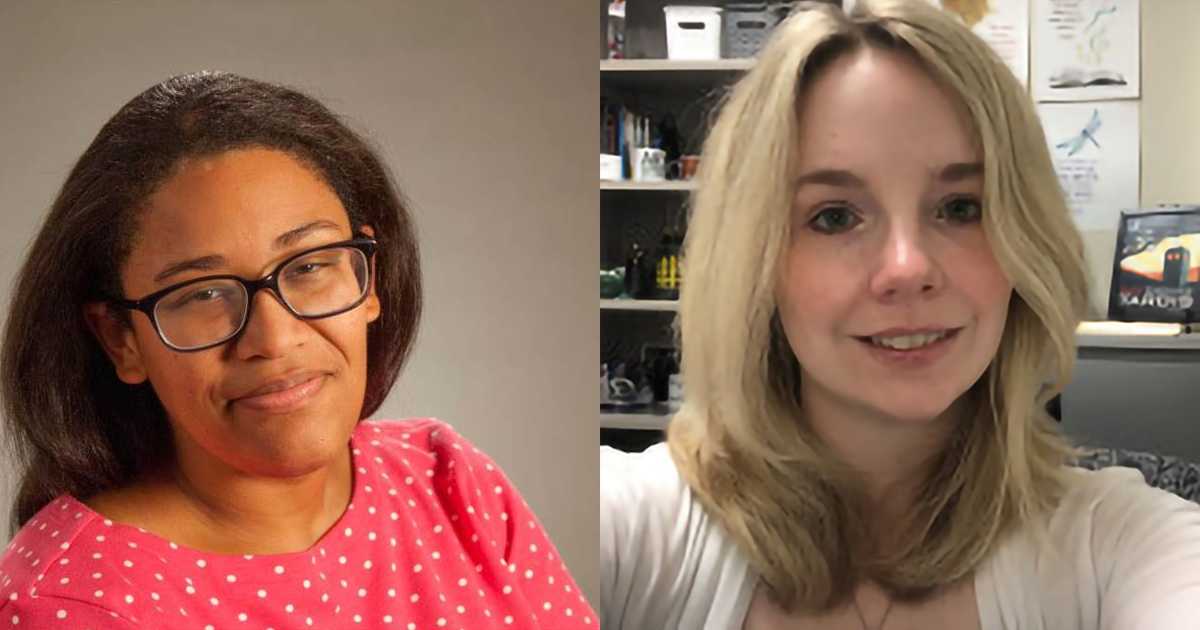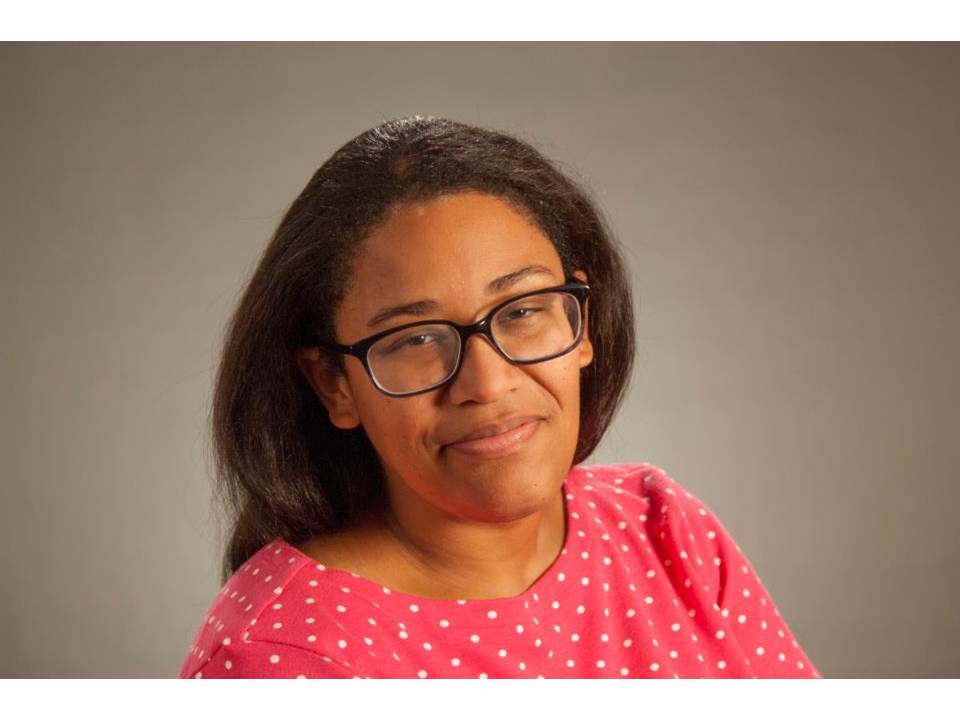This spring, two librarians took on new leadership roles as department heads. Allison Hosier was promoted to Head of Information Literacy, while Camille Chesley accepted the position of Head of Reference and Research Services. Both started their roles on March 17.
“I’m thrilled for Allison and Camille, and for the University Libraries. Allison and Camille bring an abundance of expertise and enthusiasm to their new positions and I look forward to continued innovation from our Information Literacy and Reference and Research Services Departments,” said Deborah Bernnard, Director of Public Services.
Now two months in to their roles, we caught up with Allison and Camille to talk about their experiences and visions for their departments.

Camille Chesley, Head of Reference and Research Services (left) and Allison Hosier, Head of Information Literacy Department (right)
Allison Hosier
When Allison began her path to librarianship, she never imagined that she would one day lead the Information Literacy Department—largely because doing so would require knowing that the field even existed. “I started as a graduate assistant in what was then the user education department in 2009,” she explained. “At the time, I’d never worked in an academic library before and had no idea what user education was, much less information literacy!”
That was no problem, as Allison worked under Trudi Jacobson, a Distinguished Librarian and an eminent information literacy scholar. She said, “I was lucky enough to learn about information literacy from my colleagues in the department, who are some of the best and most innovative people in the field. In doing so, I developed a passion for teaching students to think critically not only about the information they use but also the information they create.”

Allison Hosier, Head of Information Literacy
Now Allison is regarded as an expert herself, publishing and teaching about contexts of research.
Allison has a long list of goals for the department, starting with engaging in strategic planning. She emphasized that information literacy supports a number of campus priorities, including recruitment, retention, and research.
When asked why information literacy matters for students today, Allison lit up. “When information literacy first started, it focused mainly on library resources and services and the skills needed to become a knowledgeable user of those resources and services. That was because at the time libraries were the main site for most research activities, especially academic and scholarly ones. Now our information world has expanded so that we are all both users and creators of information in a wide variety of contexts.
“Information literacy is key to being able to navigate those contexts effectively. We’re teaching students not only how to be successful in their academic research but also how to be successful in their personal, professional, and creative information activities as well.”
Camille Chesley
In the first minute of our conversation, Camille made her outlook clear. “I love being a librarian,” she said. Particularly, she loves being a reference librarian. She explained how continuous shifting of information landscapes—both technological and societal—excites her. “Reference in 2022 is vastly different from reference 50 years ago or even 10 years ago.”
While the tools she uses may change, Camille’s commitment to serving the UAlbany community remains constant. In addition to serving as a reference librarian, she also holds a subject specialty in journalism, where she frequently assists faculty and students.

Camille Chesley, Head of Reference and Research Services
"I decided to become an academic librarian because I enjoy working with students, meeting them where they live, and helping them achieve their goals.”
For Camille, these responsibilities go hand-in-hand. “In an age where misinformation and ‘fake news’ are common and the lines between information consumers and producers are porous, I believe that the ability to evaluate information is one of the key skills for a literate citizen,” she said.
Camille identified a few priorities as she took on a leadership role, including evaluating reference services presently offered. She also places a premium on upholding the University’s commitment to inclusion. “I believe that cultural competence and empathy are skills which are crucial to being an effective academic librarian in a diverse university.”
The Libraries are grateful for Allison and Camille’s leadership, and we look forward to their upcoming efforts.